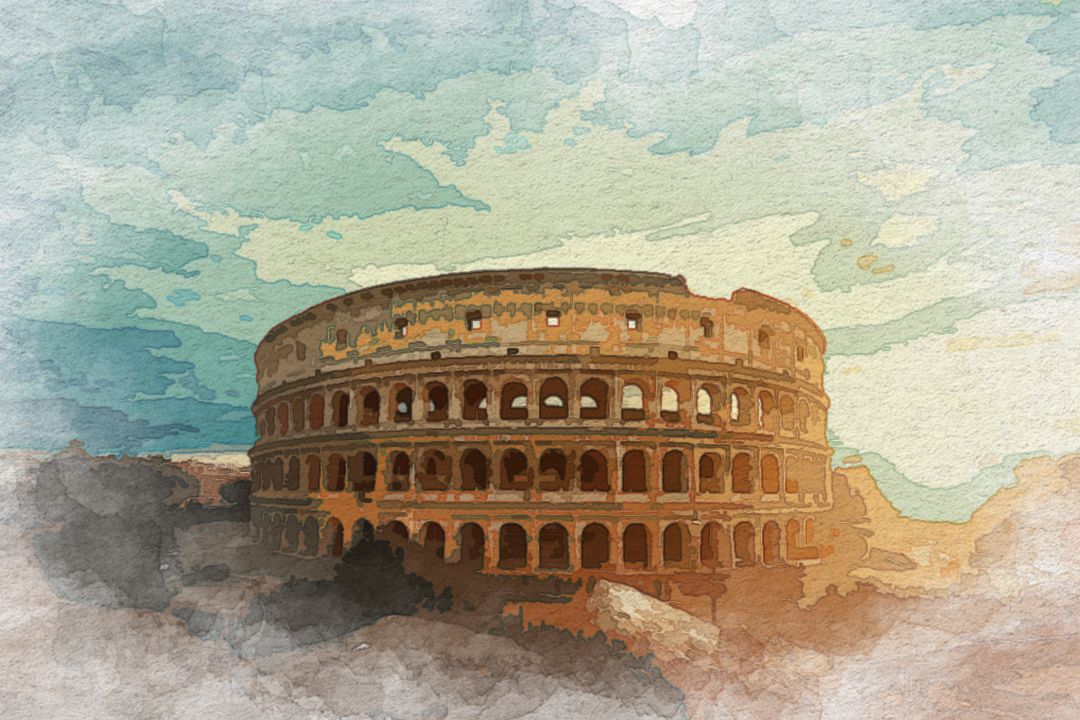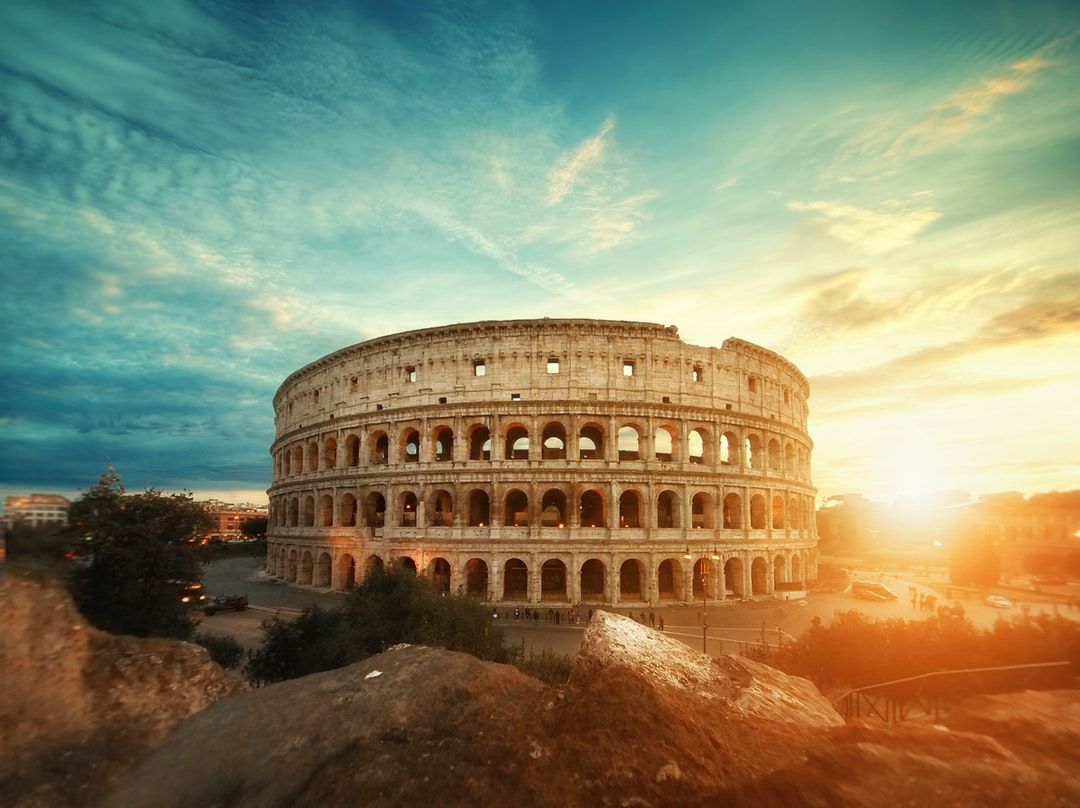Swift Calculated Tyranny

Gladiators Gain the Upper Hand and Thumb Uppers
In the heart of Rome, where the shadows of ancient legends loomed as tall as the Colosseum itself, Sophia found herself entranced by the golden aura of the setting sun. Her task was peculiar, one might even call it severe. As a modern-day strategist for a prestigious firm, her methods of corporate warfare were underhanded yet effective, shaped by the philosophies of old masters. Her latest venture: a take-no-prisoners acquisition of a historic fashion house, had brought her to this city where the past whispered in every corner.
If an injury has to be done to a man it should be so severe that his vengeance need not be feared.
— Niccolò Machiavelli (1469-1527)
Sophia, draped in the silhouette of a tailored suit that commanded respect, chuckled lightly at the thought. Machiavelli's words were her guiding principle, and she was about to apply them in a manner that the old Florentine himself might have admired. Her rival, a seasoned titan of the industry, would soon find his empire crumbling with such ferocity that he would not dare think of retribution.
With a flick of her wrist, Sophia made her move, orchestrating a series of strategic maneuvers that would leave her adversary reeling. Her team, loyal to a fault, executed her commands with precision, each action meticulously calculated to inflict maximum damage. In Sophia's world, there was no room for half-measures or mercy; only the ruthless pursuit of victory mattered.
As the sun dipped below the horizon, casting long shadows over the ancient cobblestones, Sophia stood atop the Palatine Hill, overlooking the city she aimed to conquer. The Colosseum, once a symbol of gladiatorial combat, now stood as a testament to her own brand of warfare. For in the game of power and influence, Sophia knew that to emerge victorious, one must strike with a force so severe that the enemy's vengeance need not be feared.
As evening deepened, the two found themselves at the same vista, looking over the Colosseum. Sophia, ever the conqueror, smirked at the thought of her Milledgeville origins, where her journey began in the cutthroat world of high school debates. Alexander, with his southern charm intact, mused about the eccentricities of his own hometown.
When in Rome, do as you done in Milledgeville.
— Flannery O'Connor (1925-1964)
The saying, absurd as it was, spoke to the heart of adaptation, the blending of past influences with present endeavors. Sophia and Alexander, both products of their environments, had taken their roots and stretched them across the globe.
Sophia reminisced about the fierce competitiveness of her youth, where every debate was a battleground and victory was won through wit and cunning. It was in those formative years that she honed the skills that would later propel her to success in the corporate world. As she stood in Rome, a world away from her small Georgia town, Sophia couldn't help but feel a sense of familiarity in the ruthless pursuit of her goals.
Alexander, on the other hand, saw Milledgeville as a wellspring of inspiration, a place where stories lurked in every corner, waiting to be uncovered. His southern upbringing instilled in him a deep appreciation for tradition and storytelling, values that shaped his approach to life and literature. Even amidst the grandeur of Rome, Alexander found solace in the simple tales of his hometown, weaving them into the fabric of his narratives.
Together, Sophia and Alexander embodied the spirit of adaptation, drawing upon their past experiences to navigate the complexities of the present. As they stood overlooking the ancient city, they understood that while Rome may demand conformity, it also welcomed the unique perspectives of those who dared to bring a piece of themselves to its storied streets.
In a quaint little cafe nestled in one of Rome's winding alleyways, Sophia and Alexander found themselves engrossed in conversation over steaming cups of espresso. The aroma of freshly brewed coffee mingled with the scent of centuries-old stone, creating an atmosphere that felt both timeless and alive.
As they exchanged stories and shared laughter, Alexander couldn't help but notice the barista who worked behind the counter with a quiet sense of purpose.
They also serve who only stand and wait.
— John Milton (1608-1674)
The quote echoed in Alexander's mind as he observed the barista's graceful movements, each action performed with a quiet dignity that spoke volumes. To Alexander, this barista was more than just a purveyor of caffeine; he was a silent observer of the human condition, bearing witness to the ebb and flow of life in the eternal city.
In the hustle and bustle of Rome, where every moment seemed to be in motion, the barista stood as a steadfast anchor, his presence a reminder that even in the midst of chaos, there was beauty to be found in stillness.
Sophia, too, recognized the significance of the barista's role, albeit through a different lens. To her, he was a symbol of efficiency and reliability, qualities she valued highly in her own endeavors. She admired the way he seamlessly navigated the crowded cafe, never faltering in his task despite the constant stream of customers.
As Sophia and Alexander basked in the warmth of their conversation, they couldn't help but feel a sense of gratitude for the unsung heroes who quietly went about their work, serving as the backbone of society.
As the evening descended upon Rome, casting a golden hue over the ancient city, Sophia and Alexander found themselves drawn to the iconic silhouette of the Colosseum. Standing before the majestic amphitheater, they were reminded of the timeless power and resilience of the human spirit.
The people, and the people alone, are the motive force in the making of world history.
— Mao Zedong (1893-1976)
The words of Mao Zedong resonated deeply with both Sophia and Alexander as they gazed upon the monumental structure. To Sophia, the Colosseum was a testament to the enduring legacy of human ingenuity and ambition. It stood as a monument to the collective efforts of countless individuals who had labored to construct and preserve it over the centuries.
Alexander, with his penchant for storytelling, saw the Colosseum as a stage upon which the dramas of history unfolded. From the gladiatorial contests of ancient Rome to the political rallies of modern times, the amphitheater bore witness to the triumphs and tragedies of humanity. To him, the true power of history lay not in the actions of a few, but in the collective movements of the masses.
As they stood in the shadow of the Colosseum, Sophia and Alexander were humbled by the realization that they were but a small part of a much larger tapestry. Their individual ambitions and aspirations paled in comparison to the grand sweep of history, shaped as it was by the hopes and dreams of countless generations.
In that moment, they understood that true greatness lay not in the pursuit of personal glory, but in the service of something greater than themselves. Whether through conquest or contemplation, they were both driven by a desire to leave their mark on the world, to contribute in some small way to the ongoing saga of human progress.
As they turned to leave, their hearts filled with reverence for the ancient monument before them, Sophia and Alexander knew that they would carry the lessons of the Colosseum with them wherever they went. For in its weathered stones and crumbling arches, they had found not just a symbol of the past, but a beacon of hope for the future.

The planksip Writers' Cooperative is proud to sponsor an exciting article rewriting competition where you can win part of over $750,000 in available prize money.
Figures of Speech Collection Personified
Our editorial instructions for your contest submission are simple: incorporate the quotes and imagery from the above article into your submission.
What emerges is entirely up to you!
Winners receive $500 per winning entry multiplied by the article's featured quotes. Our largest prize is $8,000 for rewriting the following article;

At planksip, we believe in changing the way people engage—at least, that's the Idea (ἰδέα). By becoming a member of our thought-provoking community, you'll have the chance to win incredible prizes and access our extensive network of media outlets, which will amplify your voice as a thought leader. Your membership truly matters!


